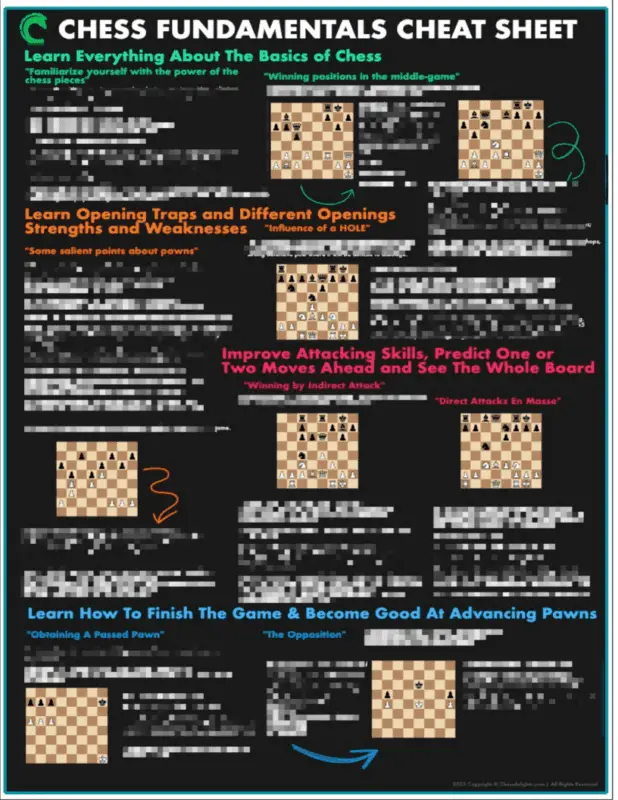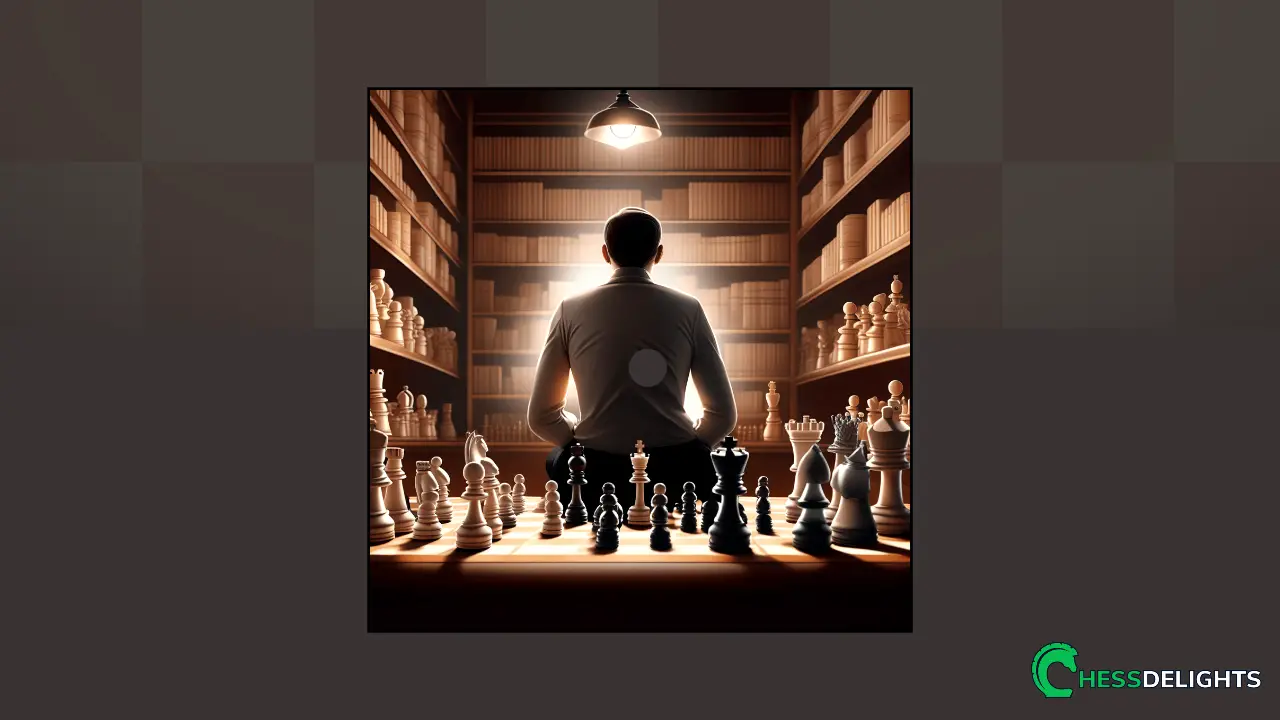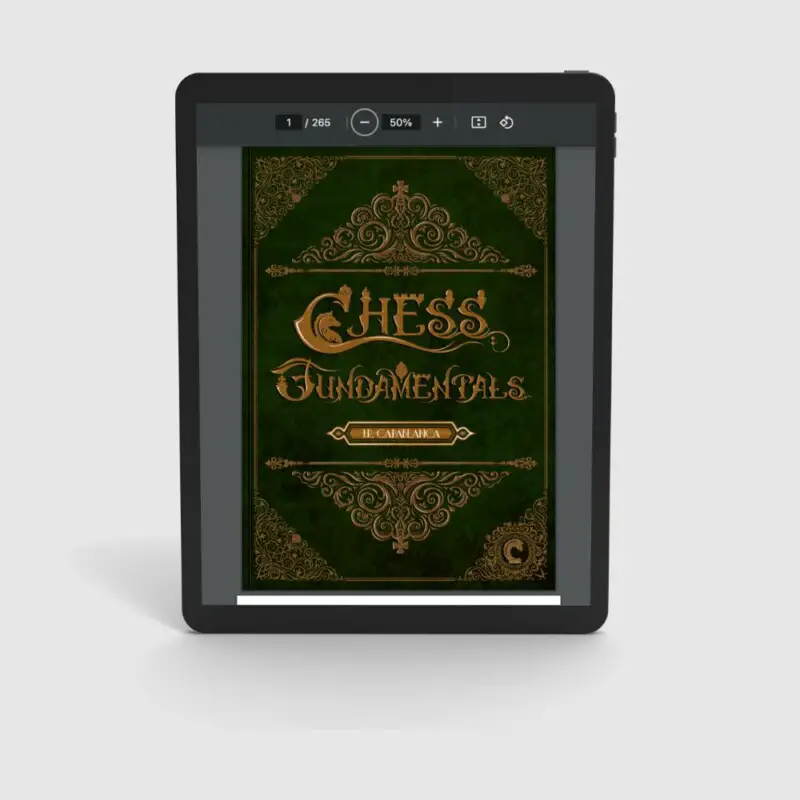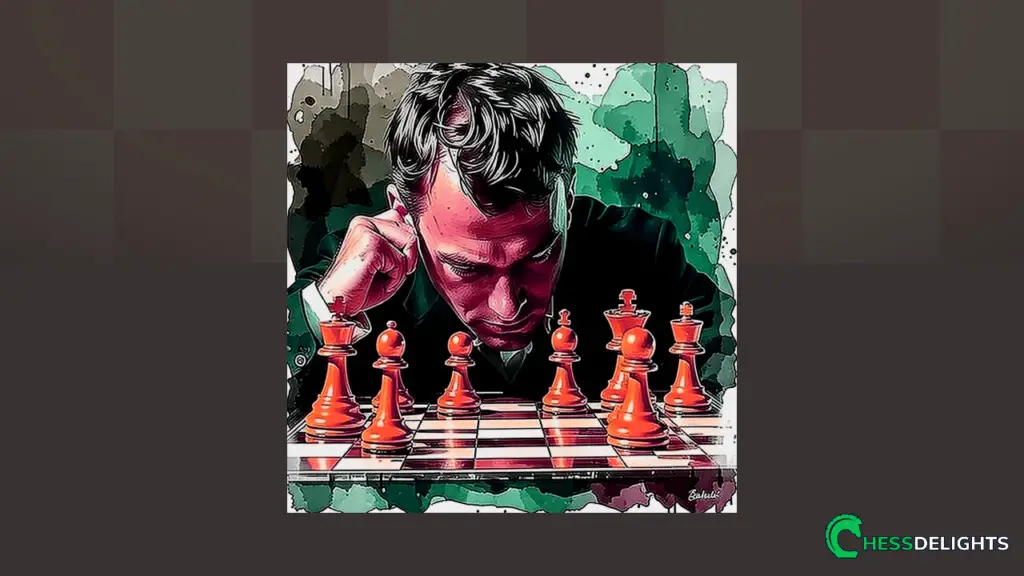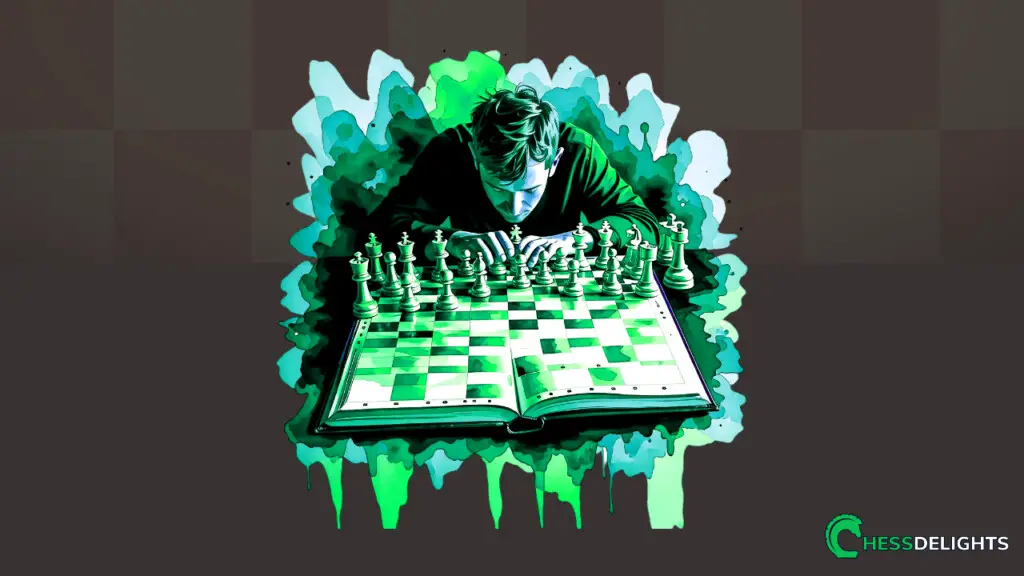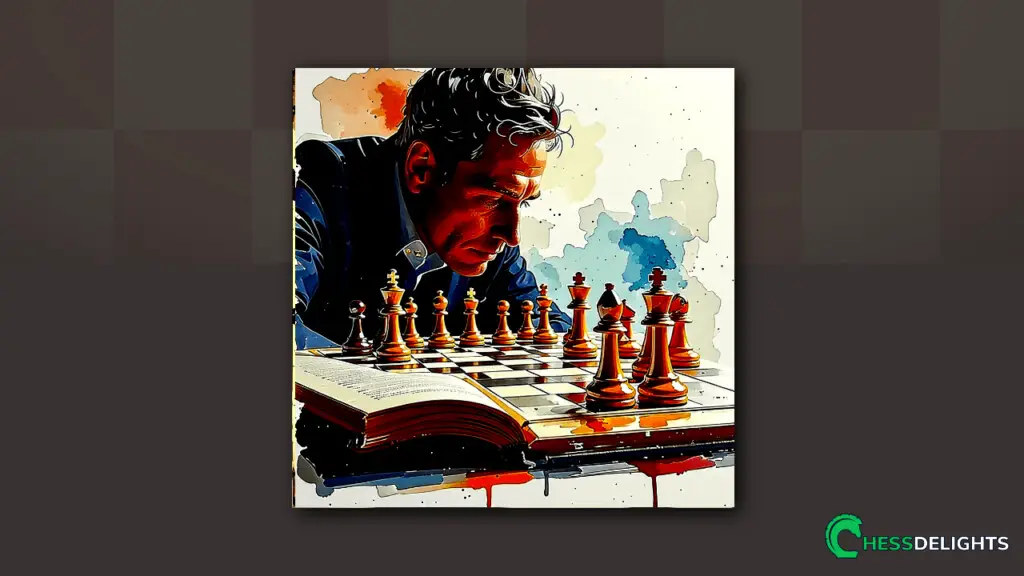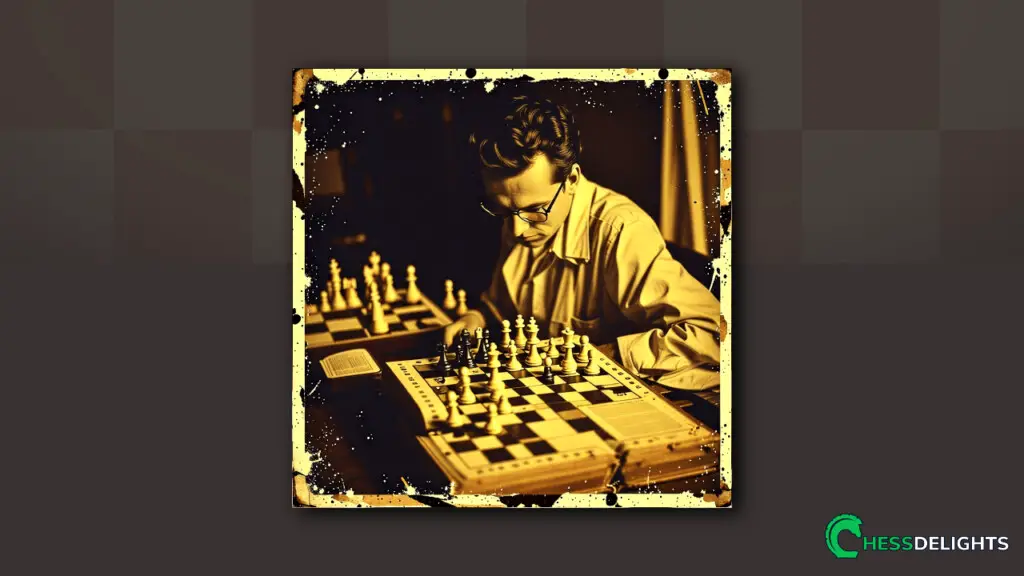Reading chess books can be a great way to improve your game, but are they always the most effective way to learn?
From my personal experience, I have found that chess books can be quite enlightening, especially when it comes to understanding the strategic depth of the game.
However, they are not always the most engaging or up-to-date way to learn. Different individuals have diverse learning preferences.
While some may find reading chess books engaging and beneficial, others might not resonate with this method.
Below, I delve into some of the pros and cons of reading chess books.
Table of Contents
Pros
1. In-depth Knowledge
Chess books provide a comprehensive understanding of various strategies, tactics, and endgames. They can improve your game by offering insights into specific openings, middle game strategies, and endgame tactics.
I've personally found this beneficial as it has helped me reassess my chess strategies.
Tip: Look for books that cover specific topics or strategies you're interested in to get the most out of your reading.
Example: A classic such as “My System” by Aron Nimzowitsch is renowned for its in-depth exploration of positional chess strategy.
I can attest to the depth and value of the strategic analysis it provides; the book has significantly refined my understanding of positional chess strategy.
Recommended Reading: If you want to learn from books without playing with someone else, read this article.
2. Practice and Application
Many books include practice problems and puzzles that allow you to apply what you've read, improving your game considerably.
This hands-on practice can reinforce the concepts and strategies you've studied.
Tip: Make sure to actively engage with the practice problems and examples, rather than just reading through them.
Example: Books like “Bobby Fischer Teaches Chess” provide numerous practical exercises for readers.
I can say that doing lots of practice exercises really helps you understand and use the strategies you learn.
3. Can Be Referenced Anytime
Chess books can be a great reference tool.
If you're struggling with a particular strategy or tactic, you can refer back to the book for guidance, making them worth the time spent reading.
Tip: Keep your chess books organized and accessible for easy reference.
Example: Books like “Chess Openings for White, Explained” can act as a handy reference guide.
Having a book like this to help you with chess can be really helpful.
4. Develops Analytical Skills
Reading and understanding chess books can help develop your analytical skills.
You'll learn to think critically about your moves and strategies, which, from my experience, can be beneficial in actual games.
Tip: Take notes as you read to help cement your understanding and encourage analytical thinking.
Example: In-depth books like “The Art of Planning in Chess” encourage readers to analyze complex strategies.
This type of books can really help improve your thinking skills, making it easier to think carefully about your moves and strategies in real games.
5. Provides a Deeper Understanding of Chess Theory
Chess books offer a profound understanding of chess theory compared to other learning methods.
They delve into the philosophy of the game, exploring intricate theories behind each move and strategy.
Tip: Choose books that delve into the theory of chess to gain a deeper understanding of the game.
Example: “The Ideas Behind the Chess Openings” by Reuben Fine is a great book for understanding the theory behind various chess openings.
This book provides a fascinating exploration into the philosophy and intricate theories behind chess openings. The insight it offers greatly benefitted my personal strategy and deepened my appreciation for the game.
6. Encourages Independent Learning
Reading chess books promotes independent learning.
You are compelled to read, understand, analyze, and interpret strategies on your own, fostering self-reliance and independence in learning.
Tip: Take your time to read and understand each concept fully for maximum benefit.
Example: A book like “Endgame Strategy” by Mikhail Shereshevsky encourages individual thinking and analysis.
This book can really help you learn on your own, making you want to read, understand, and think about tricky chess moves by yourself.
Cons
1. Time-consuming
The primary drawback of chess books is that they can be time-consuming.
It can take a while to read through a chess book and absorb all the information.
Tip: Break your reading into manageable chunks to avoid feeling overwhelmed.
Example: A comprehensive book like “Fundamental Chess Endings” can be daunting and time-consuming for beginners.
I can say that chess books, such as “Fundamental Chess Endings,” can be really hard and take a lot of time, especially for beginners. I remember spending a long time studying the difficult strategies and moves in the book.
Sometimes, I had to read a little bit at a time so I wouldn't feel too stressed.
2. May Not Be Interactive
Unlike online platforms or chess forums like chess.com, books are not interactive.
This means that you cannot play out the moves on a virtual board or have immediate feedback on your moves.
Tip: Consider supplementing your reading with interactive tools like online chess platforms or software.
Example: While reading a book on chess tactics, you may wish for an opportunity to practice the tactics interactively.
There were many times when I was really into my chess book and wished I could try out the strategies mentioned right away, instead of just imagining them.
That's why I began using online chess websites like chess.com. It helped me learn better because I could practice the moves and play with others online.
3. May Not Be Up To Date
Chess strategies and popular openings can shift over time.
A book written several years ago may not reflect how people play chess nowadays.
Tip: Watch recent chess games and tournaments to see how people play chess these days.
Example: A book written in the 80s might not cover the latest strategies used in modern tournaments.
I once read a chess book from the 1980s, while it was incredibly insightful, I found that some of the strategies were outdated when I applied them. It had smart ideas, but some didn't work well in today's tournaments.
Now, I watch new chess games online to learn and play better.
4. Not As Engaging As Other Learning Methods
Some people might find reading chess books to be less engaging than other learning methods, like watching videos or playing games online.
Tip: Find a balance between reading and other interactive learning methods that suits your personal learning style.
Example: If you find reading chess books dull, you might prefer video tutorials or online chess games.
There was a time when I didn't enjoy reading chess books as much as watching videos or playing games online to learn.
But then I realized that using a mix of these ways helped me learn better.
Recommended reading: If you want to read more ways to learn chess, check out this article.
5. Lack of Visual Aids
Chess books may lack visual aids compared to online chess tutorials or software.
This can make it difficult to visualize certain strategies or moves, especially for visual learners.
Tip: Use a physical chessboard to visualize and practice strategies learned from the book.
Example: While going through a book like “The Complete Manual of Positional Chess,” having a chessboard handy can enhance understanding.
You'll find it really helpful if you have a chessboard to look at. This really helped me understand and try out the strategies in books that don't have pictures like online lessons or computer programs do.
6. Can Be Expensive
Chess books can be expensive, especially if you’re investing in multiple books to cover different areas of the game.
The costs can add up over time, making this learning method less affordable compared to some online resources.
Tip: Look out for second-hand books or sales to save on costs.
Example: A new copy of “Dvoretsky's Endgame Manual” can be pricey, but you might find used copies at a lower cost.
As someone who really loves playing chess and has collected chess books for a long time, I know that buying chess books can be expensive.
I still remember when I bought my first chess book – it was quite expensive for me.
Luckily, I found a second-hand copy of the book in a nearby bookstore, which made it cheaper for me.
It's really important to look out for used books or sales if you want to learn more about chess without spending too much money.
Our Popular Product
Limited Offer ChessDelights Edition of Jose Raul Capablanca's Chess Fundamentals Book PDF
Now: $4.99 Only Regular Price: $6.99
7. Not Suitable for All Learning Styles
Reading chess books may not work well for everyone's way of learning.
If you like listening or doing things with your hands to learn, reading may not be as helpful as listening or playing chess games where you can interact.
Tip: Figure out how you learn best and try different ways to help you understand better.
Example: If you learn best by doing things hands-on, you could try using chess software while reading a book like “Chess Tactics for Champions.”
While I really like reading, I noticed that some of my friends like to learn in different ways.
One of my friends, who learns best by doing things, did really well by using chess software along with reading a book.
By doing this, he could use what he learned from the book in a hands-on way, which helped him understand tricky chess strategies better.
Recommended reading: If you're looking for the best book that teaches the principles of chess written by a former World Chess Champion – check this article now!
Wrapping Up
While there are both pros and cons to reading chess books, they can be a valuable resource for enhancing your chess skills.
However, they should be used in conjunction with other learning resources
Recommended reading: If you want to learn more about books that teaches positional plays, read this article.
